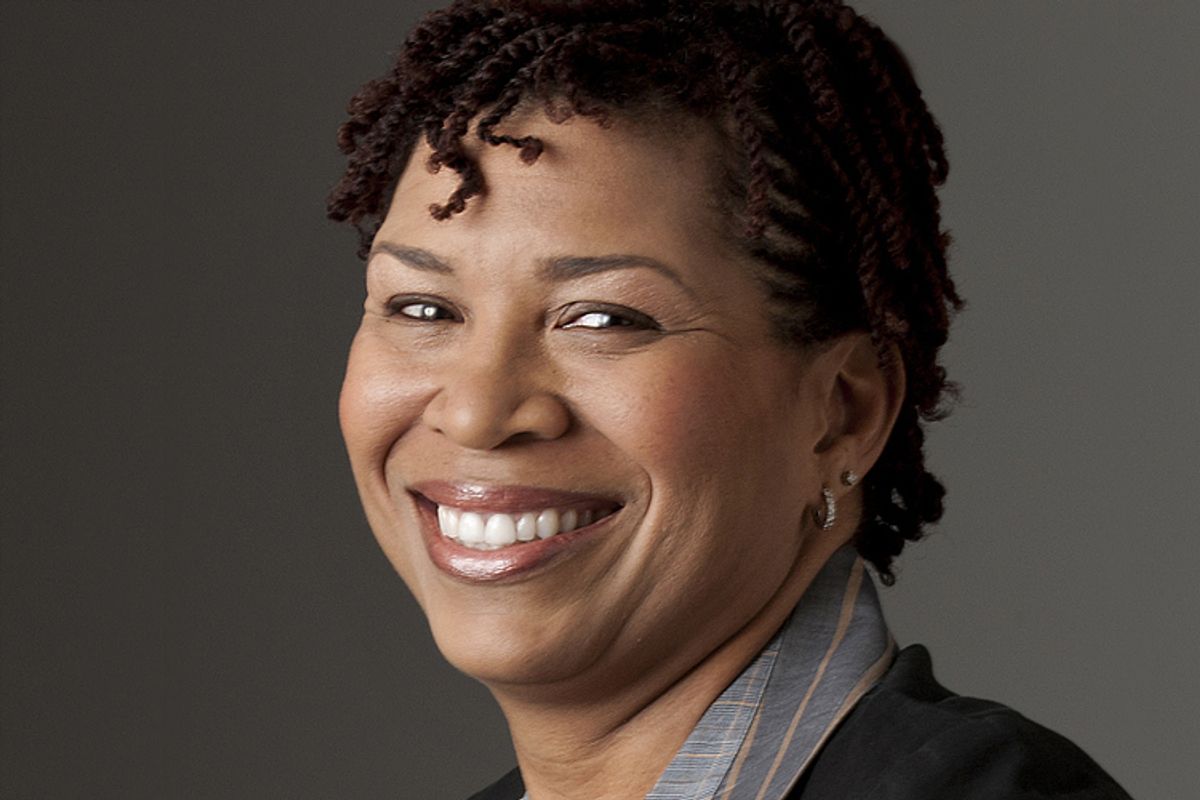Amid budget cuts, NPR announced yesterday that it was canceling "Tell Me More," the network’s only show exclusively dedicated to covering race, education, women and social issues. Twenty-eight positions will be cut and the company will allegedly save $7 million in the coming year. The last show will air Aug. 1. "Tell Me More," hosted by Michel Martin, isn’t the first show directed at minority listeners that NPR has canceled. Tavis Smiley hosted NPR’s first predominantly African-American show from 2002 to 2004. At the time, Smiley said that NPR failed to "meaningfully reach out" to minority listeners. "News & Notes," a second NPR show with African-American host Ed Gordon that was also set to speak to black issues, ended after a four-year run. Later, Gordon said of the cancellation, "Sometimes, I feel this show is being allowed to die on the vine.”
Granted, NPR still has some shows directed at representing African-American listeners ("The Race Card Project" and "Code Switch"), but it’s impossible not to notice the pattern. As Jamil Smith, a producer for the Melissa Harris Perry show, tweeted yesterday: “The end of 'Tell Me More' is a blow to media diversity. Which makes it a blow to media, period.”
Yes, it was a minority show, but it was also a hybrid that intelligently merges high and low culture. It's the only place that repeatedly spotlights social critics. Some stand-out moments: When writer and Twitter renegade Mikki Kendall, Jezebel founder Anna Holmes and Salon columnist and Rutgers University professor Brittney Cooper discussed Twitter’s “call out” culture. When writer Kelly Valen spoke about her New York Times essay detailing how her sorority sisters turned against her after she was raped. Its weekly “Barbershop,” a place where men of color (including human rights lawyer Arsalan Iftikhar, “A-Train” and "Barbershop" moderator and journalist Jimi Izrael) spoke about current events, was a playful event — a dramatic turn from the aggressive, stiff, condescending CNN panels we’re used to seeing. Martin’s ability to moderate panels ranging from children and anorexia to Halloween being too p.c. was always an exercise in fairness. She mediated opposing views from panelists — sometimes even from her own guests — with grace and intelligence.
Why, then, would NPR, the kingdom of digging deep into the most banal of details -- take Leonard Lopate’s show on kale last year, during which Lopate talked about kale for one entire hour — toss out a crucial piece of its programming puzzle? Martin’s theory, as she told public radio’s David Folkenflik, is that the show’s cancellation had to do with the “revolving door” of CEOs. (Since 2009, NPR has had five CEOs.) "To be honest with you, I think we've been casualties of executive churn," Martin said. "Every CEO who has been at this network since I've been here — and how many are there now? Six? Seven? – all of them have supported this program, but none of them have stayed around long enough to institutionalize that support." (The new CEO, Jarl Mohn, is a former MTV and E! network executive — notably not from a traditional news platform.)
Isn’t this the real problem? "Tell Me More" was never a show about celebrities — or the fad of the moment. (MTV CEOs tend to like celebrities.) The problem with having this kind of show entirely dedicated to diversity, as Wall Street Journal writer Gautham Nagesh mentioned on Twitter, is that it “gets least resources [and] is first to go when things get bad.” Nagesh’s feeling is that the goal should be for all shows — “the entire newsroom” -- to be diverse. That way it’ll make it more difficult to cut the minority stories. NPR claims this is its plan, that it wants to cover race and ethnicity stories with Martin and "Tell Me More’s" executive producer in charge. But it's hard not to fear that this is just code for watered-down material."Tell Me More" wasn’t a profile show. It wasn’t a cookbook show. It wasn’t a celebrity show. It wasn't simply about artful storytelling or human interest. It was a show that gave women — black or white — a voice. "Tell Me More" was a real conversation.

Shares